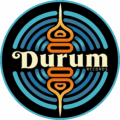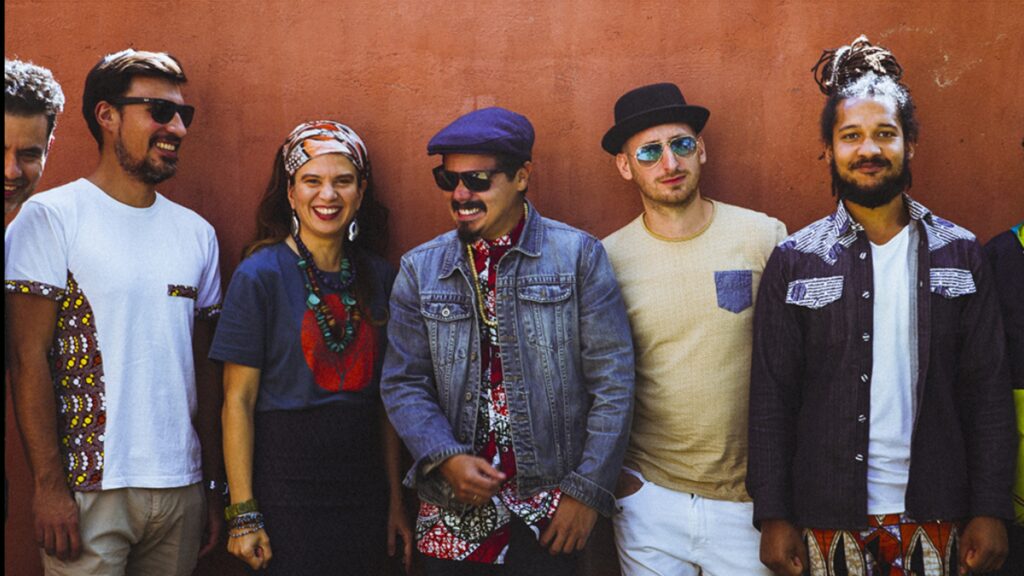From the streets of Caracas to stages across Europe, Raúl Monsalve is on a mission to put the rich, rhythmic traditions of Venezuelan music on the map. With his band Los Forajidos, he blends Afro-Venezuelan percussion with jazz, psychedelia, and experimental groove. Not as a formula, but as a natural flow of influences. We sat down with Raúl to talk about his roots, why it’s impossible to not be dancing at his shows, and the moments on stage that make it all worthwhile.
⸻
Introduction
What does the name “Los Forajidos” mean, and how does it reflect who you are as a band?
“Forajidos” means outlaws. For me, it’s about stepping outside the rules, creating freely, breaking conventions. But it’s also a historical reference. During colonial times, enslaved people in Venezuela escaped into the mountains and built their own culture. They were called “Cimarrones” in a way, they were outlaws too. That rebellious spirit inspires me. Of course, we’re not just rebels, we’re softies too. If you saw us backstage, you’d find a bunch of hugging teddy bears.
How would you describe your music to someone who’s never heard you before?
It’s a journey through Afro-Venezuelan traditions, fused with the sounds of the city: jazz, rock, and experimental music. At one extreme, raw percussion and traditional songs rooted in acoustic practices. At the other, a fully electric world of synths, rhythm machines, and psychedelic effects. These seemingly opposite forces live side by side in my music and somehow, they get along beautifully.
What stories do you tell with your songs?
The stories vary over time. Our 2020 album Bichos was very political, it talked about the situation in Venezuela, about corruption and power. But also about the inner “bichos” (bugs) we all carry, our darker sides that we have to confront. Our latest album, SOL, is much more personal and spiritual. I made it during a difficult period. It’s about searching for light. Not in a religious way, but in a human way. The sun is always there, even if clouds cover it sometimes. But clouds come and go, it’s part of life. That message is at the heart of the record.
⸻
Roots
How has growing up in Caracas shaped your musical identity?
I’m a kid of Caracas. It’s the city, so it’s different than the country side. I grew up in the early 2000s, going to local gigs, meeting people in the scene. Local bands like El Guajeo left a huge impression on me. At the same time, I was deep into Western music. That mix of influences lives in me. It’s what shaped how I hear and create music.
Do you use a lot of traditional Venezuelan instruments?
Absolutely. Afro-Venezualan music is very much percussion and vocals based, so we use them a lot in our rhythm section. One example is the quitiplás, bamboo tubes that are hit against the floor in complex polyrhythms. Another is the cumaco, a massive drum made from a tree trunk. We actually tour with it in vans, trains, planes. It’s wild, when you see us travelling with it you think ‘How is this possible?’. The cumaco is played by several people at once: some hit the back with sticks, others play the skin with their hands. That collective rhythm is central to Afro-Venezuelan music. It’s all about percussion and vocals.
How do you feel about the term ‘fusion’ to describe your music?
To be honest, I don’t like the word. It reminds me of “fusion restaurants”, where they serve sushi with sausage or something weird like that. That kind of fusion feels forced. What we do isn’t a recipe. It’s not about combining dish A with dish B. It’s more natural and freely than that. I don’t plan it out, it’s like adding some salt, some pepper, a touch of Venezuela, and seeing where it goes. The elements just coexist.
Do you see yourself as building bridges between cultures?
Absolutely. Not many people know Venezuelan music, even the Venezuelan do not recognize it sometimes. I want to help change that. Growing up, I’d hear Afro-Venezuelan rhythms on the coast, but I didn’t know what they were called or where they came from. Didn’t knew the name of the instruments. Now, I’m passionate about sharing that knowledge. Not just through shows, but also through education. I teach music here in Europe, and I hope people start recognizing these sounds as Venezuelan, just like they recognize Cuban or Brazilian music.
⸻
Live
When you play live, what feeling do you want to give the audience?
Connection. No separation between audience and band. We play the songs, because we have the instruments. But everyone in the crowd has a role: singing, clapping, dancing. Dance is essential. If people don’t dance, something’s off. It’s like a table missing a leg. The energy of the crowd is part of the music.
Is there a live show that stayed with you?
There are many moments that made a big impact. One of those was in Paradiso, Amsterdam, during Supersonic Jazz. It was during COVID, so everyone had to sit down. We were nervous not only because of the restrictions, but because our idols had played there before. But the energy was amazing. The audience was totally with us. Afterward, Paradiso invited us back multiple times and even offered to record a live vinyl EP. That night really meant a lot.
⸻
Inspires
What’s next for Raul Monsalve y Los Forajidos?
We’d just played Lowlands, Noorderzon, and heading towards Into the Great Wide Open this summer. A lot of Dutch shows! After that, I’m taking a break and going back to Venezuela for the first time in ten years. It’s going to be emotional. Reconnecting with family, friends, and the musical roots I grew up with. I’ll absorb everything, get inspired, and come back ready to write more music. It’s like plugging into a charger, I need that energy to keep going.

